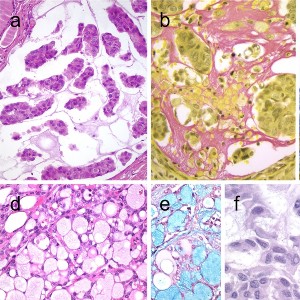Efficacy and safety of postoperative levothyroxine sodium tablets for improving serum thyroid hormone levels and tumor marker levels in patients with thyroid tumors

Accepted: 15 July 2023
HTML: 48
All claims expressed in this article are solely those of the authors and do not necessarily represent those of their affiliated organizations, or those of the publisher, the editors and the reviewers. Any product that may be evaluated in this article or claim that may be made by its manufacturer is not guaranteed or endorsed by the publisher.
Authors
Levothyroxine tablet has been used for improving serum thyroid hormones. Despite its efficacy, there has been a persistent recurrence. We aimed to evaluate the efficacy of levothyroxine regimen (administered as sodium tablets or liquid) therapy, including the regime in combination with other thyroxine hormones, to determine its effectiveness and safety regarding thyroid tumor patient outcomes. An electronic search of the online databases (PubMed, EMBASE, and Web of Science) was performed in duplicate independently by two authors (SSK and LPY) to identify any potential studies published in the English language from January 2002 to October 2022. The records were retrieved using keywords and MeSH terms. The Cochrane risk of bias tool in the Review Manager (RevMan software version 5.4.) was used to evaluate the risk of bias in the included studies. A total of 18 quality studies were reported on levothyroxine tablets. Results showed that liquid levothyroxine was more efficient than tablet levothyroxine. Further results showed that levothyroxine in combination with L-T3 or I-131 was more effective than L-T4 tablet monotherapy for improving thyroid cancer hormones. Levothyroxine tablet monotherapy is less efficient than liquid levothyroxine and/or levothyroxine combined therapy. This research recommends future research using larger randomized controlled studies.
How to Cite

This work is licensed under a Creative Commons Attribution-NonCommercial 4.0 International License.
PAGEPress has chosen to apply the Creative Commons Attribution NonCommercial 4.0 International License (CC BY-NC 4.0) to all manuscripts to be published.

 https://doi.org/10.4081/ejtm.2023.11582
https://doi.org/10.4081/ejtm.2023.11582



